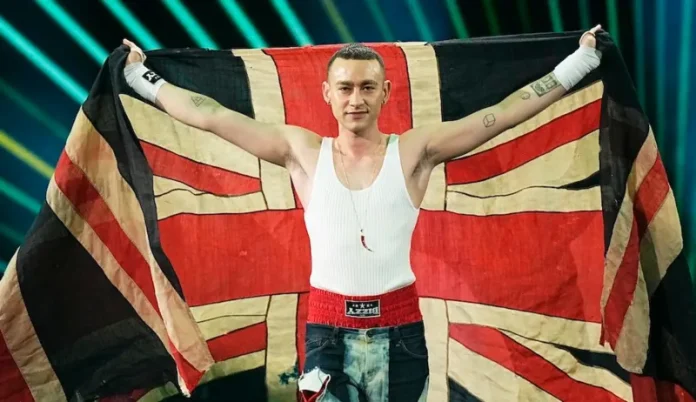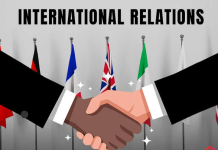Last October, Olly Alexander, known for his work with the band Years and Years, accepted an invitation to represent the UK in the Eurovision Song Contest. It wasn’t his first time being considered; he had been in the running back in 2022, but the timing didn’t feel right then. Instead, the BBC sent TikTok singer Sam Ryder with his song “Spaceman,” which earned second place, the UK’s best result in over 20 years.
The following summer, Alexander began recording his first solo album. He thought maybe one of these songs could work for Eurovision. After some discussions and secretive planning, “Project Cauliflower” was born. The preparations were kept under tight wraps, with meetings held at Alexander’s manager’s house to avoid leaks.
Alexander went public with his Eurovision entry during the grand finale of Strictly Come Dancing in December. For Eurovision fans, this was exciting news. Here was a popular, experienced performer with a love for Eurovision, ready to take on the challenge.
Even Graham Norton, the BBC’s Eurovision commentator, thought Alexander was a great fit. Norton highlighted Alexander’s experience performing to large crowds and handling high-pressure situations. Neil Tennant of the Pet Shop Boys, who had worked with Alexander, also praised his courage for taking on such a high-stakes event.
Despite these high hopes, Alexander’s Eurovision journey didn’t go as planned. His song “Dizzy” ended up in 18th place out of 25 contestants. All 46 points he received came from the jury, while the public gave him zero points. Though it wasn’t the worst result the UK has ever had, it was still disappointing given the high expectations.
Why Didn’t Olly Alexander Win?
There are several possible reasons why Alexander didn’t do better in the competition.
1. The Song
“Dizzy” is a well-crafted song, co-written by Danny L Harle, known for his work with artists like Charli XCX and Dua Lipa. The song has a catchy beat and interesting musical elements, like a chord progression that makes listeners feel a bit dizzy, aligning with the song’s theme.
However, while music experts and juries appreciated these nuances, the general public didn’t seem as impressed. Critics like Laura Snapes from The Guardian and Neil McCormick from The Telegraph described the song as “perfectly fine” but not extraordinary. The song wasn’t bad, but it didn’t stand out enough to motivate people to vote.
2. The Performance
Alexander’s performance was visually spectacular. It featured computer-controlled cameras and precise choreography, creating the illusion that he and his dancers were inside a spaceship falling through a black hole.
While the production was impressive, it didn’t resonate with everyone. Some viewers found the sexual nature of the dance off-putting, and the complex staging meant Alexander was out of sight for the first two minutes of his performance. Additionally, some noted that the physical demands of the performance affected his vocal stability, which didn’t compare well to the strong vocal performances from other contestants.
3. Emotional Connection
“Dizzy” seemed like an earnest love song, but it lacked the emotional depth of other entries. The songs that placed in the top five had a strong emotional impact. For example, Nemo’s winning song “The Code” was a powerful account of their journey to accepting their non-binary identity. Israel’s “Hurricane” by Eden Golan was a raw, emotional ode to friends lost in war. These songs connected deeply with both the audience and juries, something “Dizzy” didn’t achieve.
4. Playing It Safe
The UK has a history of playing it safe with Eurovision entries, aiming for radio-friendly pop songs. However, many successful Eurovision entries have been unique and bold. For instance, Finnish artist Käärijä’s “Cha Cha Cha” was a wild mix of industrial metal and hyperpop, which stood out last year. Ireland’s entry this year, Bambie Thug’s “Doomsday Blue,” was also unique and memorable.
Johnny Logan, a three-time Eurovision winner, noted that trying to copy previous winners isn’t the best strategy. Instead, the UK could benefit from exploring different genres and taking more creative risks.
5. Luck
Sometimes, success at Eurovision comes down to luck. Balancing the preferences of the TV audience and professional juries is tricky. Additionally, factors like performance order can influence results. Even great songs can get overlooked. For example, Armenian singer Rosa Linn’s “Snap” finished 20th in 2022 but later went viral on TikTok and became hugely popular.
Moving Forward
Despite the disappointing result, Alexander’s performance and the song were well-executed. The UK can build on this foundation for future entries. Perhaps a change in strategy or a willingness to take more creative risks could improve the UK’s chances in the coming years.
Overall, while Alexander didn’t win, he didn’t embarrass himself either. The experience and the lessons learned from this year’s contest can help shape better entries in the future. Maybe the next project just needs a different code name to bring better luck.























